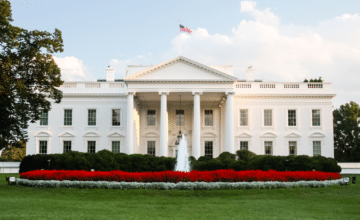FOR IMMEDIATE RELEASE
MEDIA CONTACT
Siobhan Mueller
smueller@zerotothree.org
(202) 857-2609
Pursuing smart policies for babies and families starts with renewing the CTC
Washington, D.C., December 23, 2022 – ZERO TO THREE, the nation’s leading organization dedicated to the wellbeing of infants, toddlers and families, praised the Fiscal Year 2023 omnibus appropriations bill Congress approved today and sent to the President for signature, while expressing concern that Congress failed to restore the enhanced Child Tax Credit, which lifted more than 2 million children out of poverty in 2021 and expired in 2022.
In response to the bill’s passage, ZERO TO THREE released the following statement by its chief policy officer, Miriam Calderón.
“This bipartisan legislation will help advance programs and services that make a difference in the lives of our nation’s infants and toddlers. We especially appreciate Representative Rosa DeLauro and Senator Patty Murray, who worked long and hard to secure much-needed funding increases for babies. We also thank Speaker Nancy Pelosi, a lifelong champion for young children and their families. Congress’ decision to adjourn without reinstating the enhanced Child Tax Credit, however, is an alarming failure that puts millions of children and their families at risk. With families facing both rising costs and job losses, Congress must act early in 2023 to restore this lifeline.”
Additional Background
The FY23 Omnibus spending bill increases funding for key programs for infants and toddlers and their families, including:
- $8 billion for CCDBG, a significant and much-needed $1.9 billion increase in child care assistance.
- $12 billion for Head Start and Early Head Start, a $960 million increase, with $100 million marked for increasing quality infant-toddler care through Child Care Partnerships
- $315 million for Preschool Development Grants, a $25 million increase
- $540 million for Early Intervention in Part C of IDEA, a $44 million increase
- $75 million for the Child Care Access Means Parents in Schools program, a $10 million increase
- $293 million, an increase of $205 million, for the construction and renovation of child development centers on military installations
- $30 million in new funding to place early childhood development experts in community health centers, and $10 million, a $5 million increase, to place early childhood development experts in pediatric settings
- $18 million for Infant-Toddler Court Program, a $5 million increase
- $15 million for Infant & early childhood mental health grants, a $5 million increase, and a 5-year reauthorization, plus increased funding for maternal depression screening programs
- Support for maternal and child health, including $26 million increase for state maternal innovation health grants, extension of increased access to fresh produce in WIC, permanent state option for 12-month post-partum eligibility, and 12-month continuous eligibility for children in Medicaid and CHIP.
The bill also includes a needed reauthorization of the Maternal, Infant and Early Childhood Home Visiting program, with a path to double funding over 5 years and increased funds for tribes; passage of the Pregnant Workers Fairness Act, providing protections for pregnant people in the workplace; and passage of the PUMP Act to provide accommodations for pumping breastmilk.
The enhanced CTC delivered historic reductions in child poverty in 2021. Restoring the credit is also supported by over 85 percent of parents with young children, according to recent ZERO TO THREE polling.


